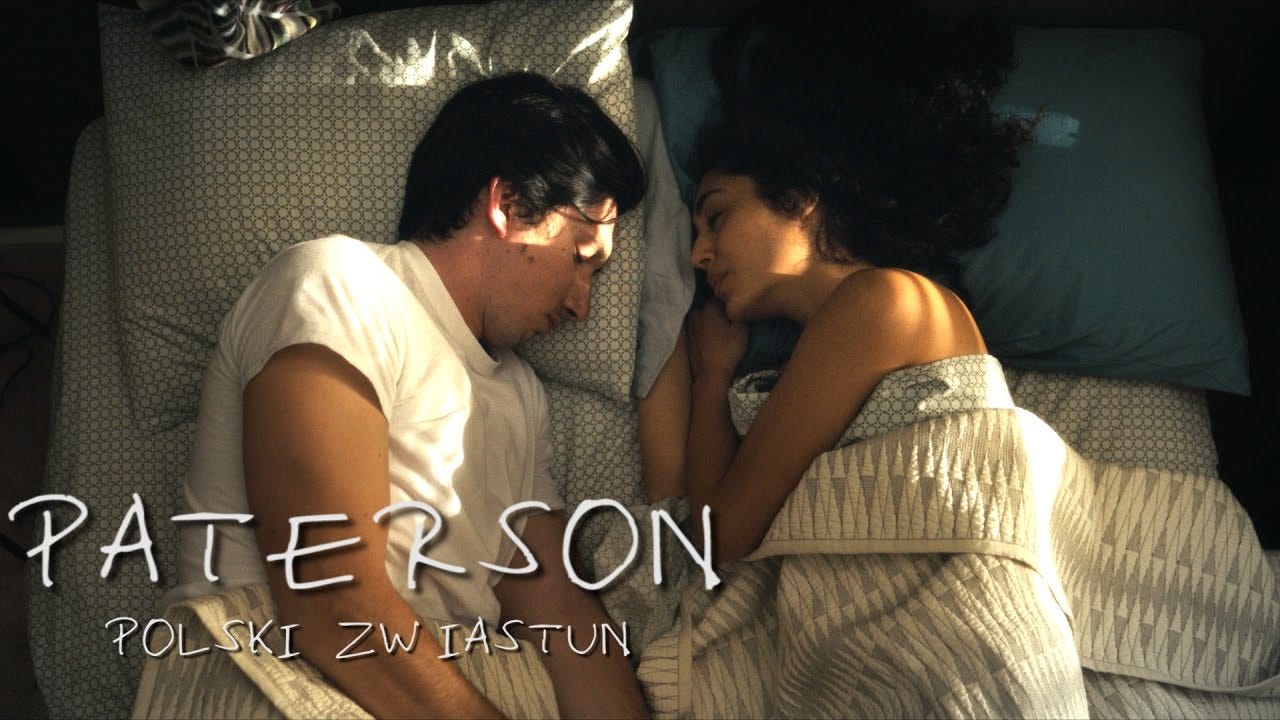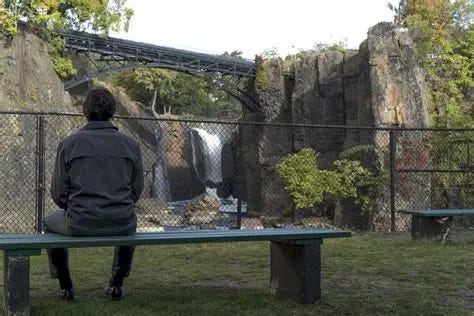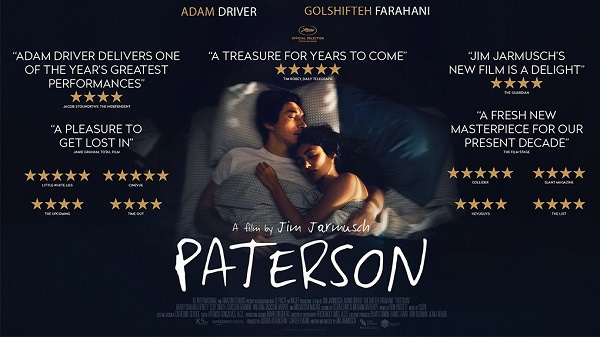The Poetry of Everyday
Paterson has my heart
The film opens in a gentle glow. A couple sleeping with their heads together. Part-sunlight, part inner light. Then the awakening. Then the kiss. Then the talk of a beautiful dream.
The stepping out into a normal morning. And the slow forming of the first lines of a poem.
Paterson (Adam Driver) is a bus driver in the city of Paterson. He writes poems in his lunch break. And returns home to a warm, beautiful house and Laura, his wife (Golshifteh Farahani) who dreams of making the best cupcakes in the world. She tells him to take his poems to the world.
And as he drives his bus, he listens into the passing conversations of his passengers. Everywhere the desire to connect, find middle ground, find ways to get out of an inherent loneliness.
And his wife, his lovely wife, listening to Arabic music, painting black circles on curtains. And on cupcakes. And strumming a guitar to maybe become a country singer. Ordinary and beautiful. She and the jealous dog.
And he walks home, into an evening, kisses her, listens attentively to the passionate stories of her ordinary day, walks the dog, goes to the bar.
And he sits and observes, as chess is played, as stories are told, as he sees posters of local heroes, and the shrinking level of beer in his glass.
And there is the ever-present human drama surrounding him. Heartbreak stories. Desire stories. Fulfilment stories. What is gorgeous is the observance. The tiniest details of tiny lives. A mailbox which refuses to straighten. An Indian supervisor who complains about life first thing in the morning. A wannabe singer who raps as he does his laundry.
Stories from which poems emerge.
And Paterson, holding his wife's ordinariness and her ambition and her dreams as if they were a precious diamond in the palm of his hand. Never cynical, never a naysayer. Not even when she serves quinoa for dinner.
And we realize how much, day to day, moment to moment, we are the ones who change the dynamics of each other's beings. By impinging on mood, rhythm, and (indeed) lives of all who are close to us, with our reactions to what they do and what they are.
In our acceptances, we are honouring their individualities, their idiosyncrasies, their oddities, and saying - "I might not understand you, I might even be irritated with you, but god forbid, that I will let that stop me from loving you."
I sometimes feel that the love, and respect, that understands this basic thing is possibly what makes ordinary lives luminous. And changes the course of the world, even as it seems to be restricted to a common home.
And the poetry, always the poetry, inhabited with the pauses, and stolen from the sounds and sights of everything around.
Director Jim Jarmusch doesn’t build a story. He sketches a life — repetition as rhythm, routine as poetry.
You realize slowly that Paterson is not about a man who writes poems.
It is about a life that is a poem.
Even the smallest disruptions — the bus breaking down, a couple’s spat in the bar, a dog chewing a notebook — are tremors in Paterson’s world. And yet, he absorbs them all. Never shaken, just aware. This is not resignation. It is acceptance. A kind of love that watches and stays.
There’s a moment — a schoolgirl recites her poem. She talks of Emily Dickinson. And you think: what a thing, to quietly carry beauty, unshared, in the folds of your day.
Later, when Paterson is sitting in front of a city waterfall, he meets a stranger — a Japanese poet visiting the home of William Carlos Williams — it feels like a passing of the torch.
“Sometimes an empty page presents the most possibilities,” the man says.
And Paterson, holding a fresh notebook in his hand, begins again.
He starts to walk back, a fresh poem like a cloud in his mind. And he reaches home.
When he tells his wife “I love you,” it’s not just love he’s expressing — it’s wonder. Gratitude. A breath held in awe.
He could’ve said anything. And it would have meant the same.
Because in the end, we are all poets.
That’s the miracle of the film. It sees what most eyes skip over. It knows that what makes us extraordinary isn’t fame or noise or grand gestures — but how we honour the person beside us.
How we let them be strange, and ambitious, and soft.
How we forgive the quinoa, the failed cupcakes, the broken dreams.
And how, even after all that, we say: “I love you.”
Because in the end, we are all poets.
Of routines. Of details. Of daily heartbreaks and quiet joys.
And in the waterfall of time, it is this — our love, our observation, our patient noticing — that lasts. And keeps us ephemeral - but renders everything we see and touch immortal.
I write, so you can enjoy and expand your world. Would you like to support me? Well, here’s what you can do -
share this post -
subscribe if you still haven’t -
tell me of your thoughts -




